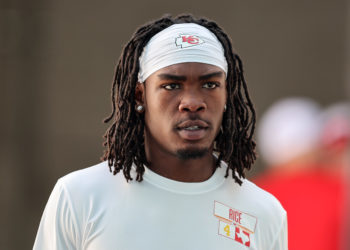Earlier this month, Jillian Michaels appeared on CNN for a panel discussion. Sitting alongside her was a New York congressman, a former special assistant to President George W. Bush, a legal analyst and a Democratic strategist. But it was Michaels, best known as America’s toughest trainer on “The Biggest Loser,” who was about to make news.
Midway through, the conversation turned to President Donald Trump’s recent directive to ensure the Smithsonian Institution “celebrate American exceptionalism” and “remove divisive or partisan narratives.” When a panelist raised what this meant for depictions of slavery, Michaels jumped to the president’s defense, saying that he was not “whitewashing” slavery and that “when you make every single exhibit about white imperialism, when it isn’t relevant at all, that is a problem.”
The response was swift, with some of those on air with her — and many people on social media — suggesting Michaels downplayed the role of white supremacy in American history, and others cheering her on. (“She’s awesome,” said the conservative commentator Megyn Kelly. “Love her.”) Michaels herself argued her comments were misconstrued, and that she was talking about slavery throughout world history. “There was no moment where I defended slavery,” Michaels told Fox News, adding that her point was that “you can’t lay it all at the feet of one race.” Doing so, she told me the next day, “is begetting very bad behavior on both sides.”
Amid the maelstrom, though, one of the most common responses was one of confusion. What was Michaels, a famous fitness trainer, doing on CNN talking about slavery, anyway?
Michaels herself can seem surprised to be in such a position. Her expertise, as she would acknowledge, involves nutrition and exercise, and she became a celebrity on a reality show that gamified weight loss, then spent years gracing magazine covers and offering body transformation tips.
In the past year and a half, though, she has squarely situated herself in the world of infotainment, shifting from an apolitical wellness authority to an unfiltered political commentator. Along the way, she has undergone a personal transformation from a Hollywood liberal — one who responded to Trump’s first election by posting a mournful picture of her children on Facebook — to someone who considers a lot of her former views propaganda.
Thank you for your patience while we verify access. If you are in Reader mode please exit and log into your Times account, or subscribe for all of The Times.
Thank you for your patience while we verify access.
Already a subscriber? Log in.
Want all of The Times? Subscribe.
The post How Did Jillian Michaels End Up Here? appeared first on New York Times.




